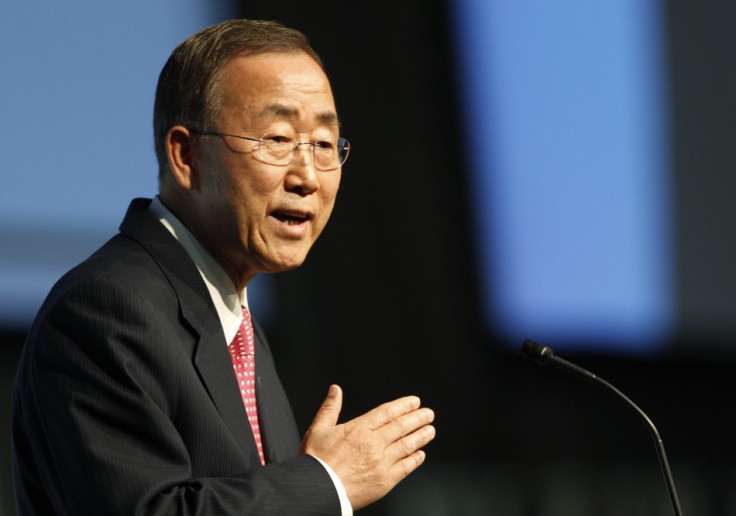Climate Change: Vulnerable Countries to Meet in Bangladesh

Ministers and high-level delegates from some of the most vulnerable parts of the world will gather at a climate forum in Dhaka, Bangladesh on Sunday and Monday.
The Climate Vulnerable Forum will give delegates the opportunity to examine the status of U.N. negotiations, climate finance, adaptation policy and progress on global emission reductions.
U.N. Secretary-General Ban Ki-moon will deliver the inaugural speech at an event expected to highlight the importance of helping vulnerable countries cope with climate change.
The weekend forum give officials a preview of the weeklong U.N. climate conference (COP17) in Durban, South Africa, scheduled to begin Nov. 28.
Saleemul Huq, senior fellow at the International Institute of Environment and Development who is expected to attend the forum, said the meeting presents a valuable opportunity for attendees to discuss key climate issues and challenges faced by vulnerable countries.
"We want to show the world that even though we still haven't reached a global agreement, we are being proactive and showing an interest in the issues and not sitting idle while we wait for someone to do something," Huq said.
The purpose of the weekend meeting in Dhaka is to put forward a sense of optimism ahead of the Durban conference talks, he added. "This event is not meant to be a new negotiating block for the group - rather, a group of countries that are coming together to raise the bar of action on climate change," he said.
Huq said that while "every country is vulnerable in some shape or form," the physical impacts that some countries experience are expected to be harsher than others. Some countries may be more prone to sea level rise, major floods, severe weather conditions, drought and glacier loss.
The forum will include one key issue: how poverty-stricken countries can overcome agriculture and infrastructure damage following a climate-related disaster.
"By and large, richer countries are better prepared for climate change than poorer countries ... because they have the technical and financial abilities to tackle the impacts. Poorer societies have less of an ability to adapt the effects of climate change," Huq said.
Therefore, the forum in Dhaka will largely focus on the preparedness of vulnerable countries and discuss tactics and strategies on how they can be better prepared. "It's an opportunity for us to learn from the experience of neighbouring countries and countries from across the globe. We can share our experiences and learn from them," Huq said.
Typically, vulnerable countries have been exempt from taking on emissions targets because they often are small and faced with the biggest challenges. But this is likely to change soon, Huq said.
"The argument is that these countries are now saying that they don't want to be exempted. And they want to do what they can to reduce their own emissions.
"This demonstrates that these countries are prepared to do what they can to enhance their action on climate change. It also demonstrates to the larger and wealthier countries that this is possible," Huq said.
Huq said the intention of the forum is to turn the climate change discussion from a negative into a positive because vulnerable countries are demonstrating action instead of waiting for others to agree on a plan. "Countries are going ahead and doing positive things and some of the countries that are most vulnerable are the most proactive."
Representatives from the following countries will attend the forum:
Bangladesh
Bhutan
Costa Rica
Ethiopia
Ghana
Kenya
Kiribati
Madagascar
Maldives
Myanmar
Nepal
Philippines
Rwanda
Tanzania
Timor-Leste
Tuvalu
Vanuatu
Vietnam
© Copyright IBTimes 2024. All rights reserved.





